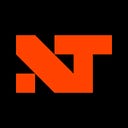4 Reasons to Trade Micro-DAX® Futures vs CFDs
When comparing futures to CFDs (Contracts-for-Difference) there are many similarities including:
- Both are derivatives products
- You can choose to take long or short positions
- You can access a wide variety of financial markets including indices, forex and commodities.
However, one significant difference exists: the structure of the marketplace.
When looking at indices, there are numerous benefits to trading futures vs CFDs. While both are popular to trade globally, CFDs are not available to trade in a number of countries including the US. This is largely due to concerns resulting from a lack of regulation of the CFD marketplace and the structure of the market itself.
To help illustrate these differences, we will focus on Micro-DAX® Futures as a popular futures contract traded internationally.
What is Micro-DAX® Futures?
Micro-DAX® Futures from the Eurex Exchange are smaller-sized stock index futures contract based on the most popular stock indices in Europe. These innovative products provide the providing the following benefits:
- Cost-efficient Products — Micro contracts with its small contract size and low margin requirements are the ideal trading instrument for global investors with smaller-sized portfolios
- Trade Both Sides of the Market with Ease — Traders can take both long and short positions on the DAX Index with no uptick rule or short-selling restrictions
- Trade Nearly Around the Clock — Micro-DAX® traders can participate in the market nearly 21 hours a day, 5 days a week to quickly react to economic news and global events
- Leverage Your Capital — Micro-DAX® futures offer leverage and futures buying power enabling traders to control a larger contract value with a smaller amount of capital
Why Trade Micro-DAX® Futures vs CFDs?
- Regulated Marketplace
Micro-DAX® Futures are traded on the highly regulated Eurex Exchange. This oversight provides a secure and fair environment possible for traders.
When trading CFDs, there is no centralized exchange and brokers are either very lightly regulated or not regulated at all. CFDs are almost exclusively traded OTC or “over-the-counter”. This means when an investor places a trade, they are executing that trade against the broker with which they have opened the account. This can raise questions related to the broker is acting in the best interest of the client.
- Cost Efficiency
Micro-DAX® Futures are a smaller version of the liquid and popular DAX Index futures. Micro-DAX® Futures are only 1 Euro making the contracts ideal instruments for those who wish to gain exposure to the major German stock market with a lower financial commitment. In addition, these contracts have low margin requirements ideal for global investors with smaller-sized portfolios. Also, when trading futures, up-front commissions & pricing are presented by a broker so there are no hidden fees or surprises.
While CFDs do offer some micro contracts, you are not paying a standard commission rate like you would with futures. CFDs may be more likely to have hidden costs, markups and swaps. Swaps are the interest rate you will pay for holding your position overnight. These interest rates are calculated by a formula, but all banks have a different rate, so the cost is not up-front and can vary greatly.
- Liquidity
When trading Micro-DAX® Futures, you are trading on a central exchange where there are thousands of traders trying to buy and sell at the most aggressive price possible. With a centralized exchange, everyone can see the same price, bid, offer and size at the same time.
When trading CFDs, you are trading against one single participant: your broker. They determine the price of the contracts being bought and sold. This means you might not be getting the best price and accurate marketplace data.
- Transparency
When trading Micro-DAX® Futures, contracts trade on the Eurex electronic system on a central limit order book (CLOB), meaning all transactions are transparent and tracking the underlying market very closely. Everyone is on the same level playing field.
Alternatively, CFDs can be one sided as prices for buying and selling contracts are determined by the CFD broker. In addition, many CFD brokers use the futures market as the basis for setting their prices and then adjust them to suit the broker.
Get Started with NinjaTrader
NinjaTrader supports more than 500,000 traders worldwide with a powerful and user-friendly trading platform, discount futures brokerage and world-class support. NinjaTrader is always free to use for advanced charting & strategy backtesting through an immersive trading simulator.
Download NinjaTrader’s award-winning trading platform and get started with a free trading demo with real-time market data today!
